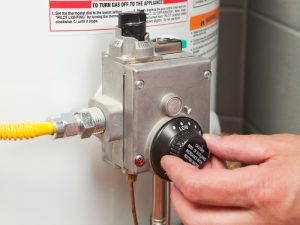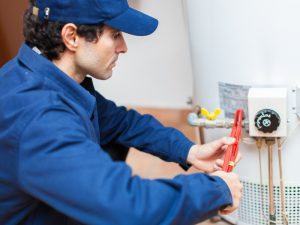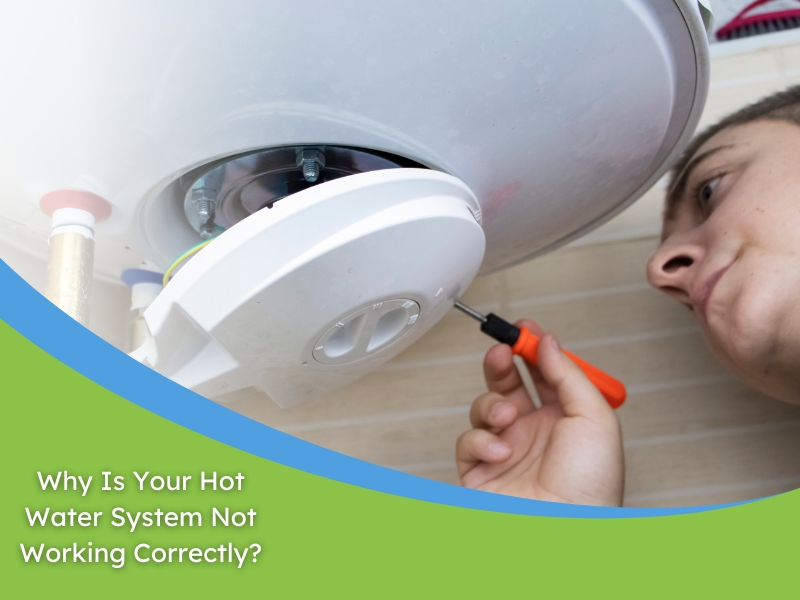Hot water is a vital part of our daily lives, from showering to washing dishes. When your hot water system isn’t working correctly, it can disrupt your routine and cause discomfort. This guide will explore some of the most common reasons your hot water system might malfunction and provide tips on resolving the issue.
What are the common reasons your hot water isn’t working?
There are several reasons your hot water system might not function properly. Understanding these common causes can help you determine whether you can fix the issue yourself or if you need to call a professional.
- Sediment build-up: Over time, minerals and sediments can accumulate in your water heater, reducing efficiency.
- Faulty thermostat: The thermostat regulates the temperature of the water. A malfunctioning thermostat can lead to inconsistent water heating.
- Electrical issues: A tripped breaker or blown fuse can interrupt the power supply for electric hot water systems.
- Gas supply issues: A gas supply problem could prevent the heater from functioning for gas-powered systems.
- Age of the system: Older systems naturally become less efficient and more prone to breakdowns over time.
Why is there no hot water coming from your hot water system?
When no hot water comes from your taps, it’s usually a sign of a more severe issue with your hot water system. Here are a few possible reasons:
- Burner failure: If you have a gas water heater, the burner may not ignite, preventing the water from heating up.
- Pilot light is out: In some older gas systems, the light may go out, stopping the heater from working.
- Faulty heating element: Electric water heaters rely on heating elements. The system will only heat water if these are fixed or burnt out.
- Thermostat failure: If the thermostat is not set correctly or fails, your system might not produce hot water.
Is your hot water system not working due to sediment build-up?
Sediment build-up is one of the most common reasons for reduced performance in hot water systems. Water contains minerals like calcium and magnesium, which can settle at the bottom of the tank. Over time, this sediment forms a layer that affects the heater’s efficiency.
- Reduced heating efficiency: The layer of sediment acts as insulation, making it harder for the heating element to warm the water.
- Increased energy consumption: Your heater has to work harder to achieve the desired temperature, leading to higher energy bills.
- Risk of tank damage: In severe cases, sediment can corrode the tank and cause leaks.
Regular maintenance, such as flushing the tank, can prevent sediment build-up and keep your system running smoothly.
How can a faulty thermostat impact your water heating?

The thermostat is the component that controls the temperature of the water in your hot water system. If it’s faulty or miscalibrated, your water heater may either overheat the water or not heat it enough. Here’s how a thermostat issue can impact your system:
- Inconsistent water temperature: A malfunctioning thermostat may cause your water to be too hot one day and lukewarm the next.
- No hot water: A broken thermostat may sometimes prevent the system from heating water.
- Energy waste: If the thermostat is set too high, your system may overheat the water unnecessarily, using more energy than needed.
If you suspect a thermostat issue, it’s best to get it checked and replaced by a professional.
Why does your hot water system take too long to heat?
Is your water heater taking ages to warm up? There are several reasons why this might happen, including:
- System size: If your water heater needs to be more significant to supply your household with hot water, it might struggle to keep up.
- Sediment build-up: As mentioned earlier, sediment can reduce your system’s efficiency, causing it to heat more slowly.
- Aging components: Old or worn-out parts, such as heating elements or burners, may not work as efficiently as once.
- Cold weather: In colder months, the system takes longer to heat water to the desired temperature.
A professional plumber can help determine the cause of the delay and recommend solutions to improve efficiency.
What should you check if your hot water stops after a power outage?
If you experience a power outage and notice that your hot water system isn’t working afterwards, here are a few things to check:
- Reset button: Many electric water heaters have a reset button that may need to be pressed after a power cut.
- Tripped circuit breaker: Check your home’s electrical panel to see if the breaker for the water heater has tripped.
- Thermostat settings: Power outages can sometimes reset thermostat settings, so double-check they’re set correctly.
If these quick fixes don’t work, it might be time to call a professional plumber to inspect the system.
How can regular maintenance keep your hot water running smoothly?
Routine maintenance is vital to keeping your hot water system running efficiently. Here are some ways maintenance can help:
- Extend the life of your system: Regularly flushing the tank, checking the anode rod, and cleaning components can prevent breakdowns and extend the system’s lifespan.
- Improve efficiency: Well-maintained systems use less energy, saving you money on utility bills. In addition, upgrade to an energy efficient water heater for a more sustainable and cost-effective solution.
- Reduce the risk of breakdowns: Regular inspections can catch potential problems early, preventing costly repairs or replacements.

When should you call an expert to fix your hot water issues?
While some hot water issues can be fixed with simple troubleshooting, others require the expertise of a licensed plumber. Call a professional if:
- You hear strange noises: If your system makes rumbling or banging noises, it could indicate serious issues.
- Water is discoloured or smells: Rusty or smelly water could indicate corrosion inside the tank.
- Frequent breakdowns: If your system breaks down often, replacing it may be more cost-effective than repairing it.
Suppose you can’t identify the issue or resolve it yourself. In that case, it’s best to call a professional who knows how to troubleshoot a faulty hot water system.
Need professional help with your hot water system?
If you’re experiencing issues with your hot water system, whether it’s a minor inconvenience or a major breakdown, the friendly team at Eco Plumbers 24/7 is here to help. With our eco-friendly plumbing services in Sydney, we provide fast, reliable solutions to get your hot water running smoothly again. Don’t let a faulty system disrupt your daily life. Call Eco Plumber 24/7 for expert repairs and advice.

